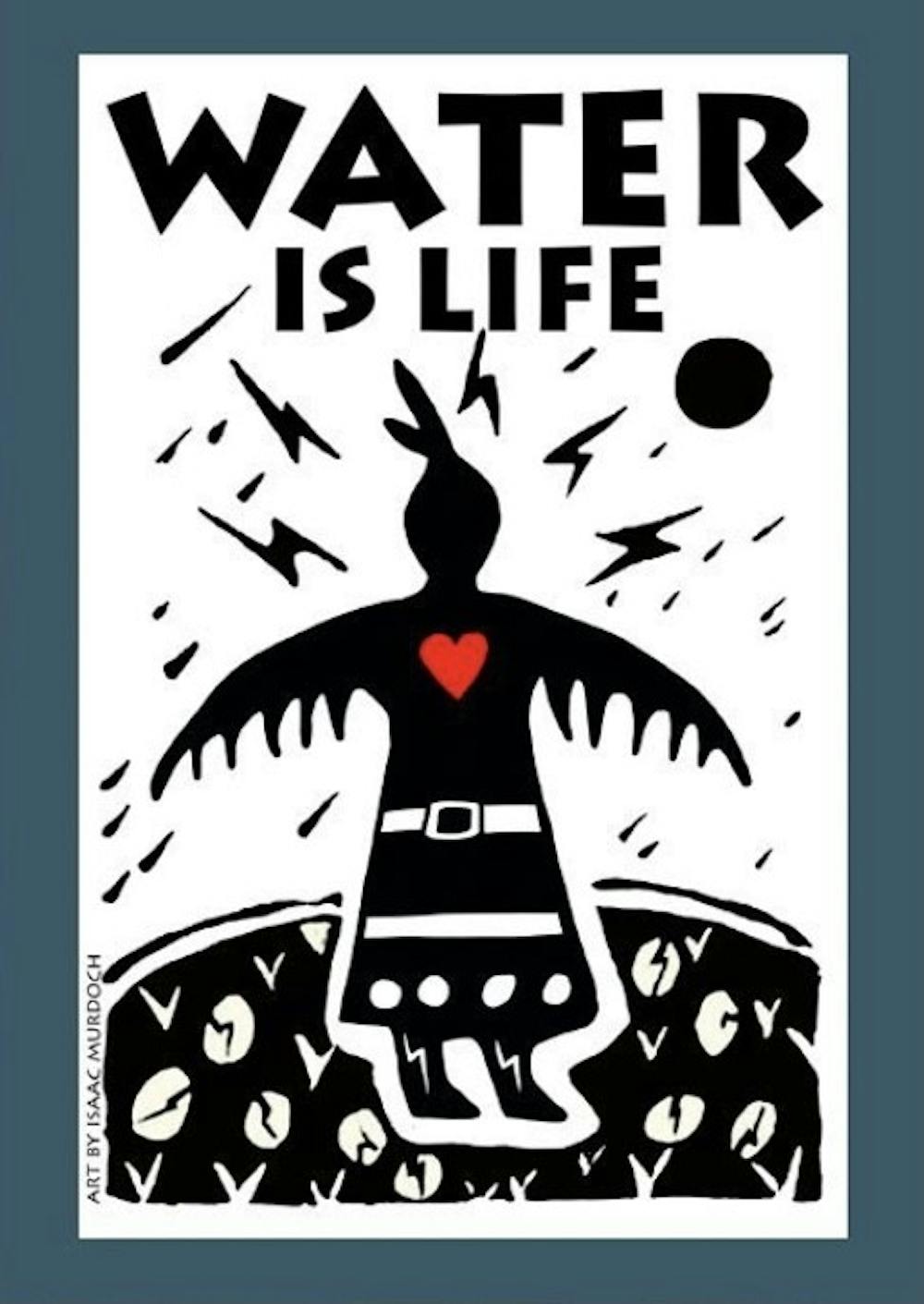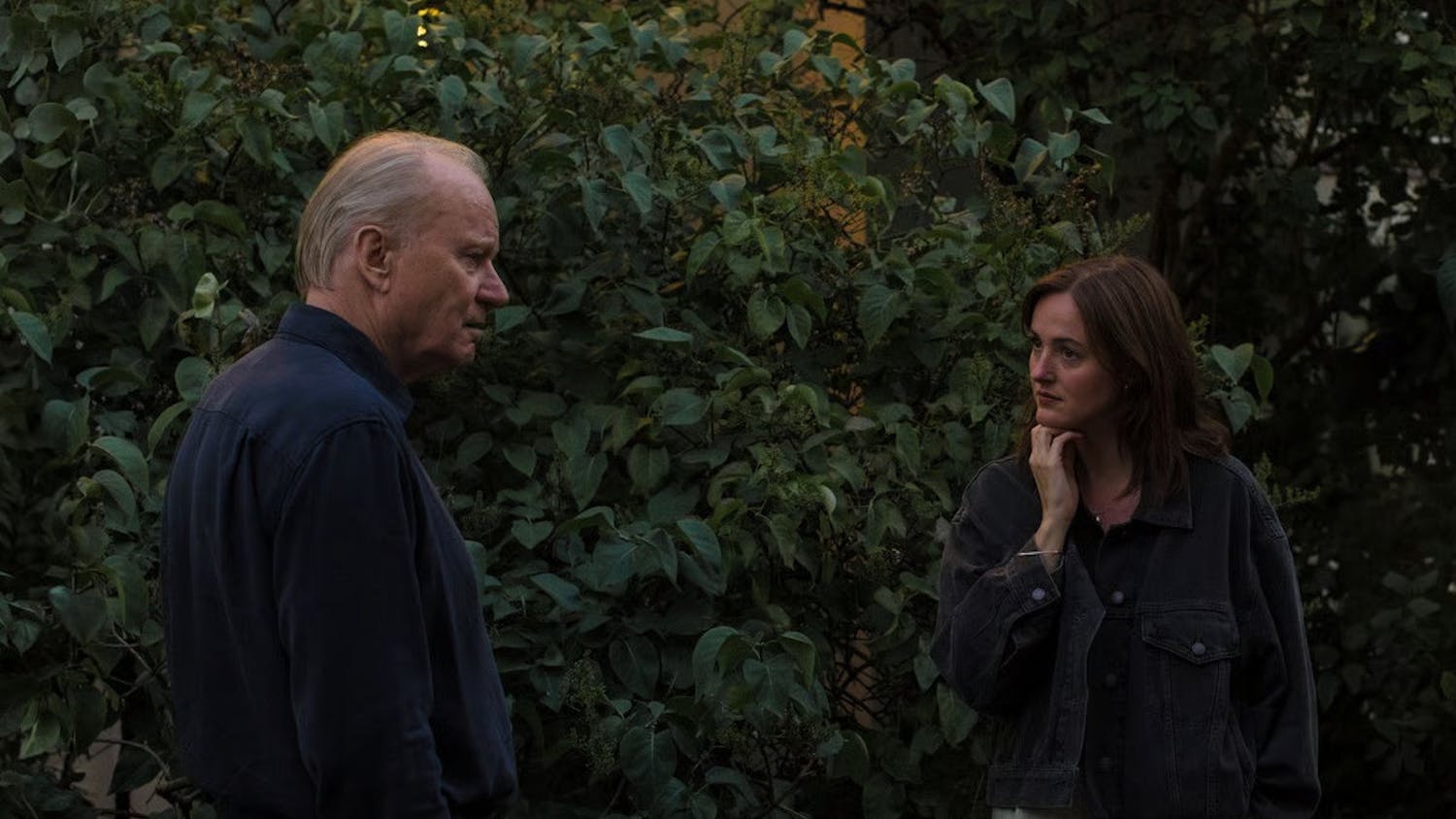Since 2014, Indigenous communities have been fighting against the construction of Line 3, a pipeline being built on Anishinaabe and Ojibwe land in Minnesota. This spring, one of American University’s Alternative Break Programs will mobilize students to join the fight.
The construction of this pipeline is not only a threat to the water and land, but also the livelihood of the Anishinaabe and Ojibwe tribes. Line 3 transports crude oil, which contains harmful chemicals that will contaminate the water, affecting Indigenous agriculture practices and community health. As of Oct. 8, construction was completed and Line 3 became fully operational.
AU offers Alternative Break Programs during fall, winter and spring break, giving students the opportunity to partake in an immersive learning experience centered around a social justice issue. The Sovereignty and Stewardship program, set to take place during spring break in D.C., seeks to address Indigenous justice issues and their intersections with environmental stewardship.
“Now more than ever, we need representatives and student advocates at our nation’s capitol trying to convince Biden to stop this pipeline,” said program leader and junior Emily Bass.
According to Bass, the White Earth Nation of the Ojibwe Tribe has been sending delegations to D.C. to demand political action throughout the entirety of the movement. The Sovereignty and Stewardship Alt Break seeks to take advantage of the proximity to our nation’s capital, Bass said.
“That’s where our program differs from others,” said Nicholas Burch, another program leader. “Most Alternative Break Programs are centered around concepts, while ours is centered around a current and evolving issue.”
The program focuses on more than just Line 3. According to Bass, the participants will also address the crisis of missing and murdered Indigenous women and the effects of obstructive economies and modern day settler colonialism on Native women.
Addressing the intersectional issue of Indigenous justice requires the collaboration of various communities. This Alternative Break will collaborate with and invite speakers from organizations such as Honor the Earth and professors from Lac Courte Oreilles Ojibwe College in Hayward, Wisconsin.
Although the program is centered around Indigenous justice for the Ojibwe tribe, Burch and Bass hope to promote Indigenous justice on AU’s campus as well.
“SANC [Student Advocates for Native Communities] used to be an organization on campus and it currently isn’t,” Burch said. “But we are actively trying to develop a core member base to revitalize the group.”
Burch and Bass hope that the revitalization of SANC will catalyze AU to take action steps towards Indigenous justice.
“We’ve been working to pressure AU to issue land acknowledgements, which is the first step in a long line of action,” Bass said. “In the long run we want to see more classes offered on campus that deal with Indigenous issues. Right now there are only two, and they’re operating on a rotating basis.”
Bass stressed the importance of AU giving students the necessary resources to educate themselves about Indigenous justice: “Especially since we’re a very political school and there are many students who want to go into the political field, it is extremely important that students understand our nation's relationship and history with Indigenous nations and people,” Bass said.
According to Burch, the Sovereignty and Stewardship Alternative Break seeks to not only educate the AU student body about the injustices of Line 3, but also center their environmental stewardship around building community and a sense of indigeneity at AU that will sustain beyond the program.
“Indigenous issues are local, as are most environmental issues,” Bass said. “No matter where you are in the country and even in the world there are Indigenous people who work towards goals that you can get involved with if you can’t join this program.”
The application deadline for the Sovereignty and Stewardship Alt Break is today. Click here to access the application and program itinerary. Click here to access the petition for AU to issue land acknowledgements.





